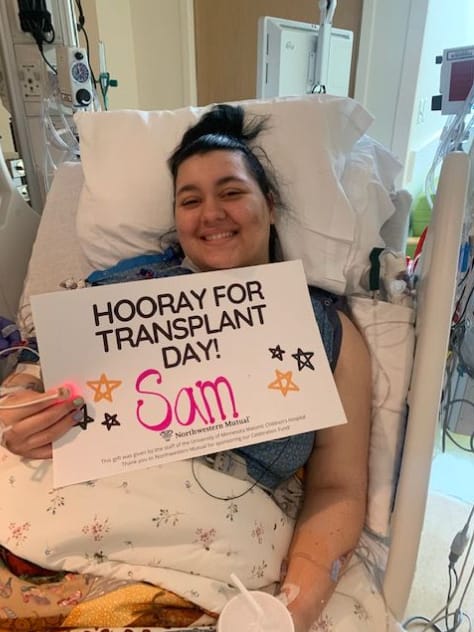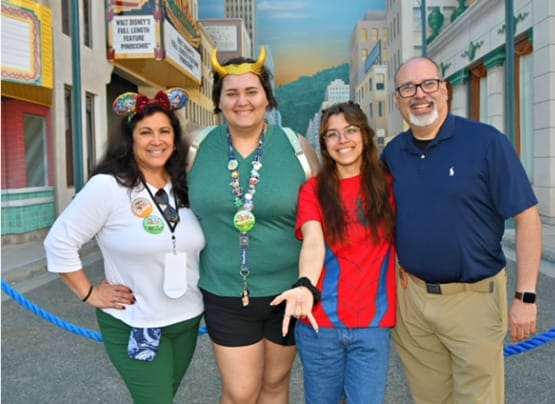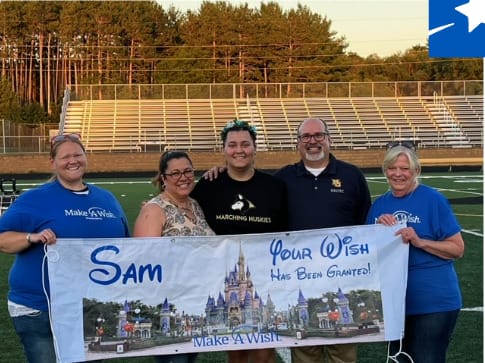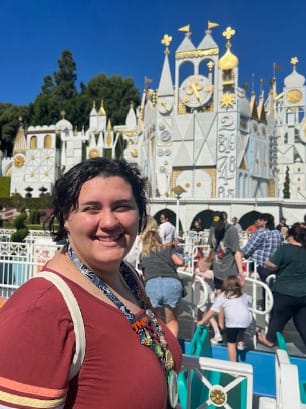Mother and Daughter Inspire Understanding About Organ Donation in Multiethnic Communities
Sam’s difficult health diagnosis inspire her family to speak out about cultural disparities in healthcare and encourage everyone to be more open about the needs in organ donation and treatment.

It was the spring of her sophomore year of high school when Sam’s life turned upside down. At 16 years old, Sam was a straight-A National Honor Society student, actively involved in orchestra and the color guard and worked after school as a preschool aid. Suddenly she became very ill. At first doctors through she had the flu or COVID-19, but her pediatrician decided to order additional blood tests. A couple of hours after the results came in, Sam’s parents received a heart wrenching phone call.
“I remember it like it was yesterday,” said Sam’s mother, Frances. “I had just dropped Sam off at school when the doctor called and asked me to take her right to the hospital.” Once in the ER at Masonic Children’s Hospital, Sam’s parents and Sam were told that Sam had end stage renal disease and that both of her kidneys were failing. She needed a kidney transplant right away.
“It was shocking,” said Frances on hearing the news. “It was the most terrible nightmare a parent can go through or hear as far as a diagnosis for your child, and to relive it even now brings back a lot of emotions. Knowing that she’d have to go on a waiting list for an organ transplant, and that she may have to wait a long time…I tried to be a living donor myself—our whole family did—but we weren’t a match. We were devastated.”
Sam had a hard time processing the news herself and admits she blocked a lot of it out. “I couldn’t wrap my head around it as it was so out of the blue. I didn’t have any prior health history or anything.”
In January 2022, Sam was placed on the pediatric organ transplant waiting list, but another complication arose as she was told that it may be harder for her to find a match, based both on her blood type and her Hispanic ethnicity.
Studies show that African Americans, Pacific Islanders and Hispanics are three times more likely to require a kidney transplant than white Americans. Additionally, Hispanic Americans receive disproportionately fewer organ transplants than non-Hispanic whites.
These racial and ethnic disparities* in organ donation are due to multiple factors:
- BIPOC communities say “yes” to organ donation at a much lower rate than white communities
- 60% of the more than 100,000 people on the national waiting list are people representing multicultural communities
- Fewer racial and ethnic minority communities participate in clinical trials, which impacts the type of treatment and medications available to minority populations.
Frances herself worked in healthcare for years before her daughter was diagnosed with renal disease and has done deep work in shaping equity in healthcare management. “As a healthcare professional and woman of Hispanic origin, I want to continue to raise awareness about organ donation and organ equity. I teach Diversity, Equity, and Inclusion in Healthcare Management to students at the University of Minnesota, and we have a very diverse student population. It’s so important for us to raise awareness of organ donation because you never know when you might need one, or when someone else might need you.”
Dr. Ty Diwan, a transplant surgeon from the Mayo Clinic, points out while organ, eye and tissue transplants can be successful regardless of the race or ethnicity of the donor and recipient, the chances of long-term survival increase with closer genetic matches, which is why it’s important for the organ registry to consist of diverse individuals.
As far as improving healthcare outcomes among multi-ethnic communities, Frances encourages continuing to have difficult conversations about end-of-life decisions and questions surrounding organ donation with family members and friends. “It’s important to talk about the needs of the changing population. None of us ever imagine we’ll need an organ, and then to know there might be additional barriers and disparities that exist because of who we are culturally and ethnically. We need to break down these cultural barriers and be more open about the needs in organ donation and treatment.”

Yet even with these added impediments, 5 months into being on the transplant waiting list Sam received a call from the hospital that she was on standby for a kidney from a deceased donor who had been in a car accident. Sam recalls, “My best friend and I were going to each other’s proms, and I had just picked up our corsages when I got the call that I was to come in because they had a kidney for me. I remember feeling bad that I was going to miss being there for my friend at prom, which I guess now seems silly, considering it was life-saving news for me.”
Sam was given a second chance at life thanks to the amazing gift from the organ donor’s family. “I understand that the donor family is going through unimaginable pain for the loss of their loved one,” Sam’s mother relayed through tears. “But we just want to say thank you, because your loved one had a purpose in so many ways we can’t explain. And we’re eternally grateful for that life, that gift that was given so selflessly by that family.”
Although Sam missed a lot of her junior and senior year of school due to her transplant journey and recovery, she was still able to finish out her high school studies, even being selected as captain of the color guard, and graduated on time with the rest of her classmates. During her recovery, the Make a Wish foundation granted Sam’s family a trip to Disneyland to see the new Marvel: Avengers park—one of Sam’s favorite things. “It was a very special moment for our family because we were able to see Sam finally have fun and laugh on the rides, and even ‘fight’ with her sister…all of it was very special” said Frances.



After a couple of years of recovery behind her, Sam is now looking forward to getting her bachelor’s degree in social work from St. Catherine University and pair it with law post-grad, where she hopes to work somewhere in pediatric care, thanks to the support she received during her time at Masonic Children’s Hospital that inspired her. “Life is not back to the old normal,” Sam says. “But this is a new normal, and the best thing is that I get to continue living. And I am so grateful for that.”
*These healthcare disparities reinforce the need for National Minority Donor Awareness Month (NMADM) education and outreach to help heal and save lives in our communities. August is NMADM. It is a collaborative initiative of the National Organ, Eye and Tissue Donation Multicultural Action Group (NMAG) to save and improve the quality of life of diverse communities by creating a positive culture for organ, eye and tissue donation. Register as an organ, eye and tissue donor now and give the gift of life!
 Skip to main content
Skip to main content
